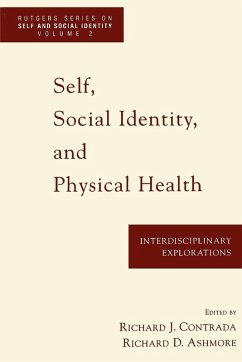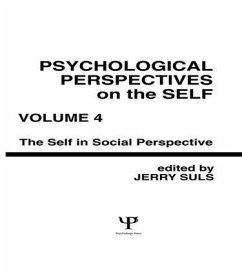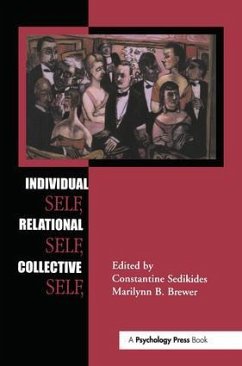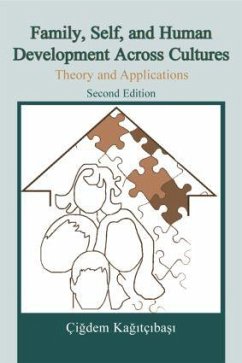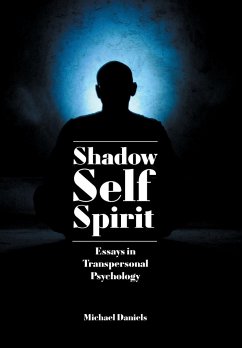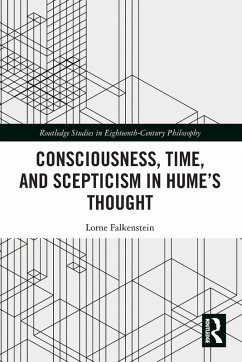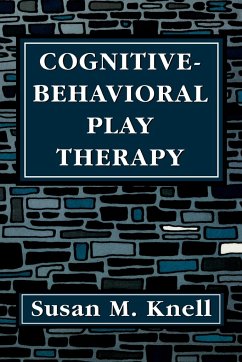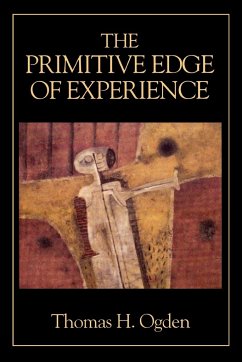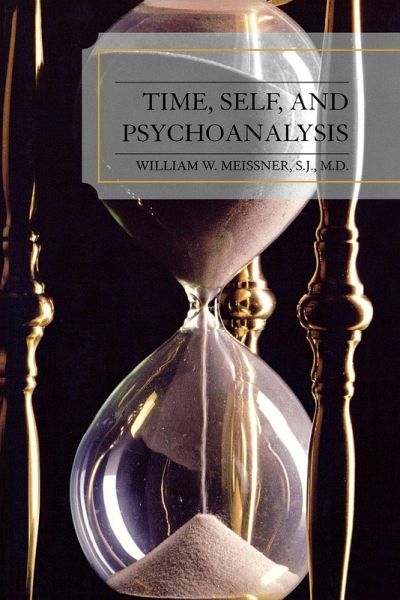
William W. Meissner
Broschiertes Buch
Time, Self, and Psychoanalysis
Versandkostenfrei!
Versandfertig in 1-2 Wochen

PAYBACK Punkte
35 °P sammeln!





Time, Self, and Psychoanalysis has two theoretical foci: the first is the nature of time experience and the second is the implications of the understanding of time for conceptualizing the nature and functioning of the self. The result is a result is a rethinking of the self-concept and its engagement in the analytic process. The book pragmatically explores patterns of enactment in analysis through three extensive cases in which chronic and significant lateness characterized the analysis.
William W. Meissner, M.D. was formerly clinical professor of psychiatry at the Harvard Medical School and is presently training and supervising analyst emeritus in the Psychoanalytic Institute of New England, East. Among his more recent books are The Ethical Dimension of Psychoanalysis and The Dynamics of Human Aggression (co-authored with A.-M. Rizzuto, M.D. and D, H. Buie, M.D.).
Produktdetails
- Verlag: Jason Aronson, Inc.
- Seitenzahl: 298
- Erscheinungstermin: 6. März 2007
- Englisch
- Abmessung: 229mm x 152mm x 18mm
- Gewicht: 487g
- ISBN-13: 9780765704993
- ISBN-10: 0765704994
- Artikelnr.: 22708622
Herstellerkennzeichnung
Libri GmbH
Europaallee 1
36244 Bad Hersfeld
gpsr@libri.de
Meissner offers the reader fascinating insights into the profound differences between subjective and objective time He heightens our awareness to the fact that our sense of time has a great deal to do with who we feel we are, have been, and will be. Detailed clinical material enriches the brilliance and wide-ranging scholarship we have come to expect from Meissner. The crucial relation between the patient's feelings about time and the resistance to growth and change are clearly elucidated. The reader will come away with a new appreciation of the importance of time in analysis, in life, in sense of self and in preparation for (or avoidance of) death. A rich, deep, and thought-provoking read. -- Axel Hoffer, M.D., training and supervising
Mehr anzeigen
analyst, Psychoanalytic Institute of New England, East Dr. Meissner has produced a tour-de-force about the subject of time. This is a well-written and erudite work considering time from numerous perspectives, especially that of psychoanalysis-e.g., time in the patient's mind, time in the analyst's mind, and time in the analytic hour. -- Ernest Hartmann, M.D., professor of psychiatry, Tufts University; author, Dreams and Nightmares (Perseus, 2001) Meissner's work is a rich consideration of the role of time in various iterations in human psychology. Though focused on psychoanalysis, this book is relevant to many areas of clinical, counseling, social, and developmental psychology. Meissner is a prolific and original writer, as comfortable with philosophy as he is with psychology. His writing is poetic, reflective, and provocative. The reader is presented with a compendium of the various meanings of time. Meissner provides a comprehensive discussionof various philosophical positions on time as it has been seen through the ages. He references thinkers such as Aristotle, Derrida, Heidegger, Kant, Kristeva, Newton, Merleau-Ponty, Nietzsche, Ricouer, and Whitehead. Overall, Meissner's book is unique.As clinicians we are called on to work within constraints of time and place, while simultaneously considering the timelessness and placelessness of unconscious experience. Meissner's book is rich, even too rich with opportunity to dwell on, as well as todwell in time. Reading it is well worth your time. PsycCRITIQUES Through Meissner's writings, and particularly through his in-depth exploration of what he knows and discovered in his work and with his patients, psychoanalysts can reconsider problematic aspects of their own work while discovering new ways to think through the workings of time in the psychoanalytic process. -- Winter 2008 Psychoanlytic Books Meissner's rich and highly developed clinical cases bring to the forefront many classical psychoanalytic tenants...Meissner also provides the reader with extensive notes that further illuminate the points made in each chapter, perhaps in the hopes of raising as many questions as he answers in this highly informative text... -- Annie Lee Jones, PhD Meissner's work is a rich consideration of the role of time in various iterations in human psychology. Though focused on psychoanalysis, this book is relevant to many areas of clinical, counseling, social, and developmental psychology. Meissner is a prolific and original writer, as comfortable with philosophy as he is with psychology. His writing is poetic, reflective, and provocative. The reader is presented with a compendium of the various meanings of time. Meissner provides a comprehensive discussion of various philosophical positions on time as it has been seen through the ages. He references thinkers such as Aristotle, Derrida, Heidegger, Kant, Kristeva, Newton, Merleau-Ponty, Nietzsche, Ricouer, and Whitehead. Overall, Meissner's book is unique. As clinicians we are called on to work within constraints of time and place, while simultaneously considering the timelessness and placelessness of unconscious experience. Meissner's book is rich, even too rich with opportunity to dwell on, as well as to dwell in time. Reading it is well worth your time. PsycCRITIQUES
Schließen
Für dieses Produkt wurde noch keine Bewertung abgegeben. Wir würden uns sehr freuen, wenn du die erste Bewertung schreibst!
Eine Bewertung schreiben
Eine Bewertung schreiben
Andere Kunden interessierten sich für




